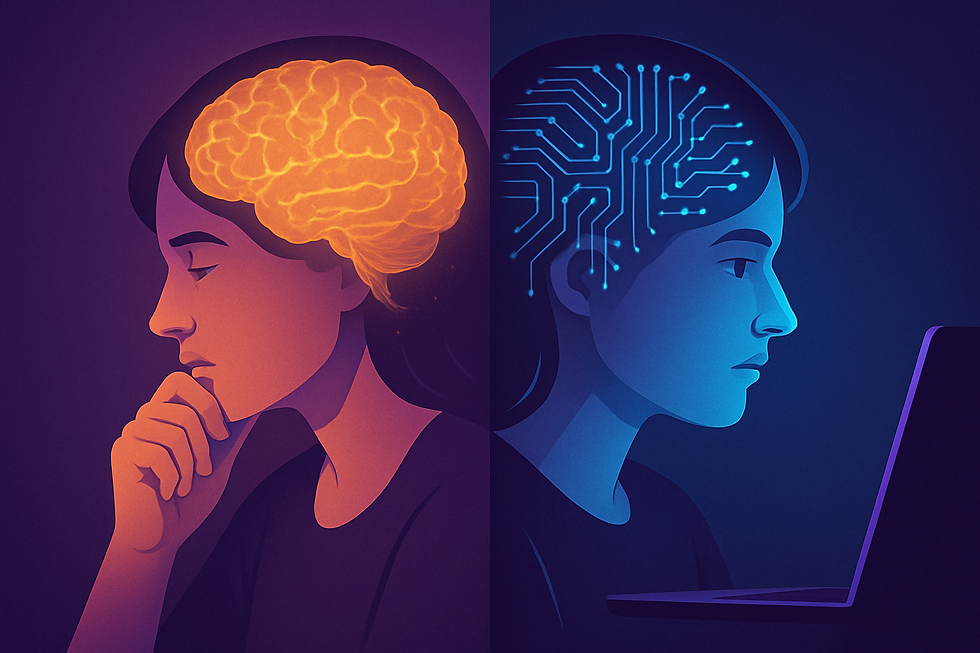MEDIA COMMENTARY: AI changes your brain. Some experts are asking whether it matters
- sara438620
- Aug 9, 2025
- 3 min read
Updated: Oct 7, 2025
When something feels good or makes life easier, humans are ill-adapted to set healthy limits. And research out of the Massachusetts Institute of Technology in the United States now shows when that addictive substance is AI, the cost is cognitive decline.
AI and brain health
Experts have been concerned about the potential impact of over-reliance on artificial intelligence tools on the human brain almost since its inception. Past studies have looked at technology’s mixed impacts on attention, mental health and relationships. And already we have seen more than a few examples of smart people trusting AI without human due diligence, with embarrassing results.
Now, the latest data from MIT has found that participants asked to rely solely on the use of a large language model (LLM) like ChatGPT to complete assignments performed worse across all measures: neural connectivity, language and score performance.
The researchers used electroencephalography to record the brain activity of 54 participants over a four-month period. They found a 55 per cent decrease in connectivity between different parts of the brain in participants in the LLM group.
The LLM group showed a reduction in activity in the parts of the brain used for making meaning and evaluating visual information. The findings supported the theory that the kinds of research tools you use can affect more than just your performance – they can remap the way your brain works to connect short and long-term memory and process information.
The LLM participants “significantly underperformed” in tests of working memory. No participant was able to recall a single correct quote from their own essay after their first test and one-third were unable to recall a quote at any point during the study.
This was “the most consistent and significant behavioural divergence between the groups”, according to researchers.
LLM participants also showed signs of cognitive debt – a persistent diminishment of capacity even after the LLM use was withdrawn – in areas such as critical and creative thinking. The researchers said this specific finding was preliminary and required further study.
Sara Sabin is an executive coach who preaches a neuroscientific approach to leadership development. She expressed particular concern about the finding that what LLMs seem to be best at is conditioning our brains to use more AI.
“In other words, for us to become really good at using and integrating AI better, while ultimately impairing our ability to do without it,” she said. “The less we use our brain to think and reason, the more those neural network connectivities start to reduce over time.”
But some experts aren’t sold. AI&U author Tracy Sheen had one big question: “Does it matter?”

“[AI is] the new literacy skill,” she said. “It’s more important than reading, writing or arithmetic.
“I had someone really come at me the other day saying, ‘But kids will never learn how to write’. And I’m like, ‘But do they need to?’ That’s the whole thing with all of this. We need to keep challenging.”
She also argued that different people learn in different ways, and so one study showing an extreme case of blinkered LLM use might not have all that much to teach us.
Regardless, Sheen said, if using LLMs improves your ability to prompt LLMs, that might actually be the No. 1 skill for the future.
Read the article https://shorturl.at/sevdQ


